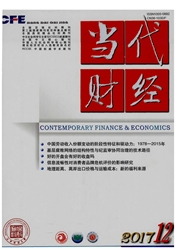

 中文摘要:
中文摘要:
工业部门能源效率的提高是整个长三角城市群能效提升的关键。文章采用随机前沿分析方法并基于超越对数生产函数,首次对2001—2009年长三角城市群14个代表性城市的工业全要素能源效率增长率进行了测算及分解,并进一步基于面板数据模型对工业全要素能源效率增长的影响因素进行了经验考察。研究结果表明:长三角城市群工业全要素能源效率一直呈现增长趋势,工业技术效率整体上呈现下降趋势,技术进步率则保持稳定增长,但大多数城市呈现出规模经济下降状态;企业规模、对外开放、政府干预、外商直接投资和煤炭消费比重对工业全要素能源效率增长表现出显著的抑制作用,而偏向于劳动密集型的要素投入结构则有利于工业全要素能源效率的提升。
 英文摘要:
英文摘要:
The increase in energy efficiency of industrial sectors plays a key role in the rise in energy efficiency of urban agglomeration in the Yangtze River Delta. Based on stochastic frontier analysis and trans-log production function, this paper estimates and decomposes the growth rates of industrial total factor energy efficiency of fourteen representative cities in the urban agglomera- tion in the Yangtze River Delta from 2000 to 2009 for the first time. Furthermore, it empirically investigates the influencing factors of the growth of industrial total factor energy efficiency based on the panel data model. It comes to the following results: firstly, industrial total factor energy efficiency of urban agglomeration in the Yangtze River Delta shows a continuously growth trend, while industrial technology efficiency presents a downward trend on the whole, and industrial technology progress remains stable;a majority of cities are featured by a decline in economies of scale; secondly,enterprise scale, openness, government intervention, FDI, and the share of coal in the total energy consumption play the significantly inhibition role in the growth of industrial total factor energy efficiency, while labor-intensive-oriented factor input structure is beneficial to the increase in industrial total factor energy efficiency.
 同期刊论文项目
同期刊论文项目
 同项目期刊论文
同项目期刊论文
 期刊信息
期刊信息
